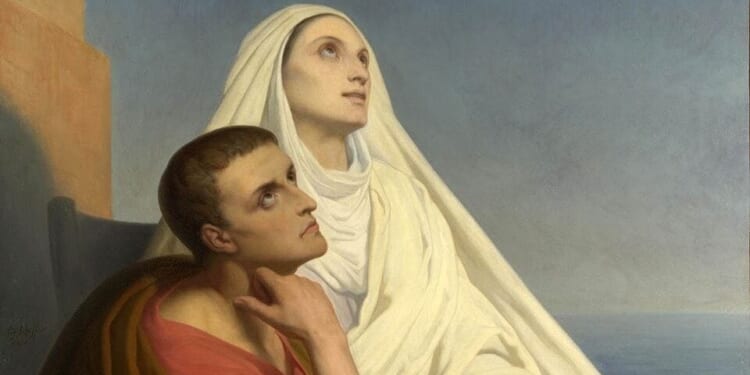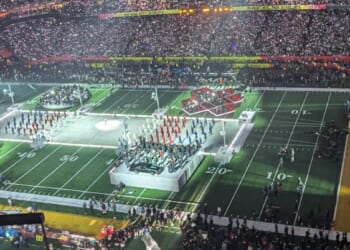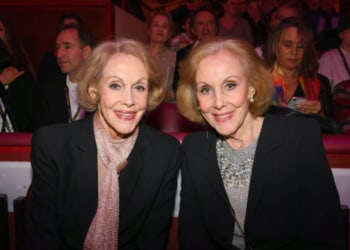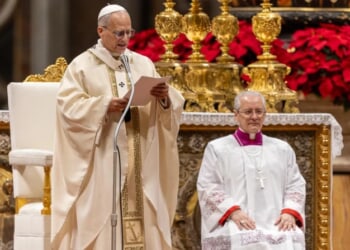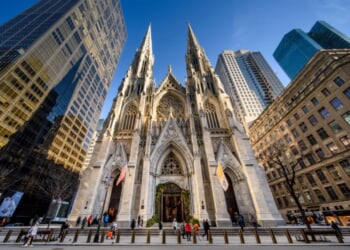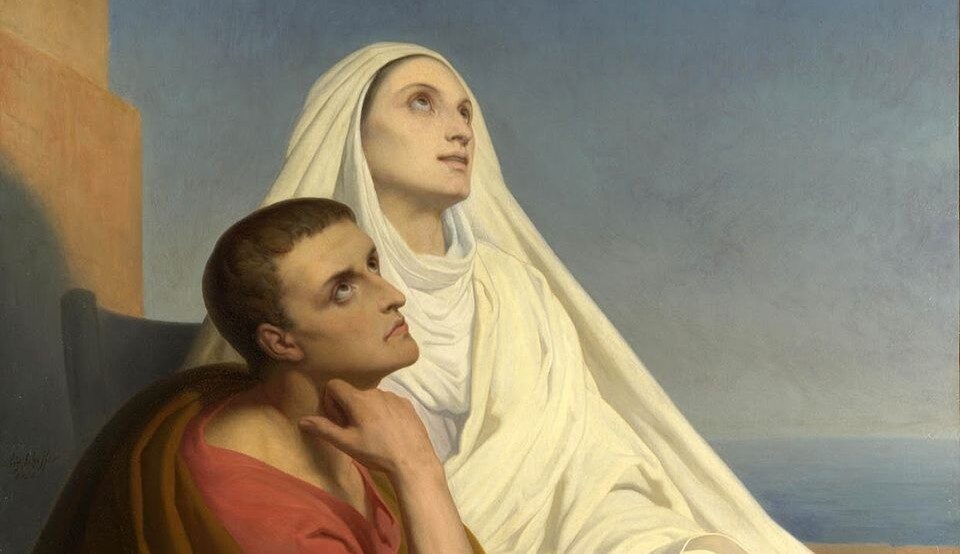
“O God,” writes St. Augustine, “I pray you let me know myself.” We are, to ourselves, an enigma, a conundrum, a puzzle, a mystery. That is why Juvenal, the Roman poet, believed that the inscription, “Know Thyself,” chiseled on the entrance of the temple at Delphi, was placed there by God (e coelo descendit gnothi sauton). According to theologian Hans Urs von Balthasar, the original meaning of the inscription was, “Enter into yourself; allow yourself to be told by God that you are only a human being.”
We are only human beings! We must be repeatedly reminded of this. We cannot be God or Prometheus, or a Titan, or any other type of Superman. We are finite creatures destined to die and commit many errors over a brief span of life. We can be noble, and we can be wretched. We can behave in the manner of Narcissus or St. Francis of Assisi. We are protean in our confusion and wear many hats.
Hamlet enunciated the noble side of man most eloquently when he said, “What a piece of work is a man! how noble in reason! how infinite in faculty! in form and moving how express and admirable! in action how like an angel! in apprehension how like a god! the beauty of the world! the paragon of animals! And yet, to me, what is this quintessence of dust?” As a philosopher, Hamlet understood the grandeur of man, but even as he mouthed these fine words, he was in a state of abject misery. Did Hamlet know who he was?
Blaise Pascal spoke of man in a more existential manner: “What sort of freak, then, is man! How novel, how monstrous, how chaotic, how paradoxical, how prodigious! Judge of all things, feeble earthworm, repository of truth, sink of doubt and error, glory and refuse of the universe! Who will unravel such a tangle?” For Frederic Nietzsche, “We are unknown, we knowers, to ourselves.”
The contradictions inherent in being human are experienced in each one of us. We might simplify things if we view man as constantly struggling between two peripheries. Let us call one the “ego,” or the material side of man, and the other the “true self,” or his spiritual side. The former is a vanity. It is the unreal assessment we have of ourselves that is riveted to our individuality. It is the side that is prone to flattery. The true self is what God wills us to be and is expressed through love. We oscillate terribly between these two peripheries, between selfishness and generosity.
We see man as a kind of Dr. Jekyll and Mr. Hyde contradiction. “What do these contradictions mean?” asks Jacques Maritain. “They mean that the human being is caught between two poles; a material pole, which, in reality, does not concern the true person but rather the shadow of personality or what, in the strict sense, is called individuality, and a spiritual pole, which does concern true personality.” To be a spiritualized person transcends being a mere individual.
Bishop Fulton J. Sheen defines this human contradiction as a tension between the ego and the I. “The ego is what we think we are; the I is what, in fact, we are. The ego is the spoiled child in us—selfish, petulant, clamorous, and spoiled—the creation of our mistakes in living. The I is our personality made to the image and likeness of God!”
It should not be surprising that we are such contradictory characters. After all, we are composed of two extremes: the nothingness out of which God created us, and the Love that formed us. Hamlet was consonant with Scripture when he said that man is the “quintessence of dust.” We must pray that we follow that path that God has set for us while avoiding, as much as we can, choices that lead back to nothingness. Macbeth’s epitaph for his misguided wife is summed up in the words, “Full of sound and fury, signifying nothing.”
So, who am I? I am inclined at once in opposite directions—toward beatitude and toward perdition. Life, therefore, is intensely dramatic. Heaven and hell are calling us at the same time. Wisdom bids us to answer God’s call. This is the vocation of every man. Peace of mind consists in being dedicated to putting our true selves into practice. Anxiety results when we try to balance opposite poles that can never be brought into balance.
The secular world is committed to serving individual desires. It poses an immense difficulty for the person who seeks personal authenticity. In such a climate, money becomes more important than prayer, possessions become more important than love. The odds are set against us. Yet we must never lose hope in the power of God and the grace that is available. Martin Luther King, Jr. has expressed the matter with sparking clarity: “Every man must decide whether he will walk in the light of creative altruism or the darkness of destructive selfishness.”
First, we seek, with God’s help, to know who we are. Then, we make the wise decision to walk along the path that God has set for us. Third, we must be faithful and not allow ourselves to be side-tracked by the enticements of the world. Commitment to these three points answers, in a most satisfactory manner, the nagging question, “Who am I?”
Image from Wikimedia Commons

